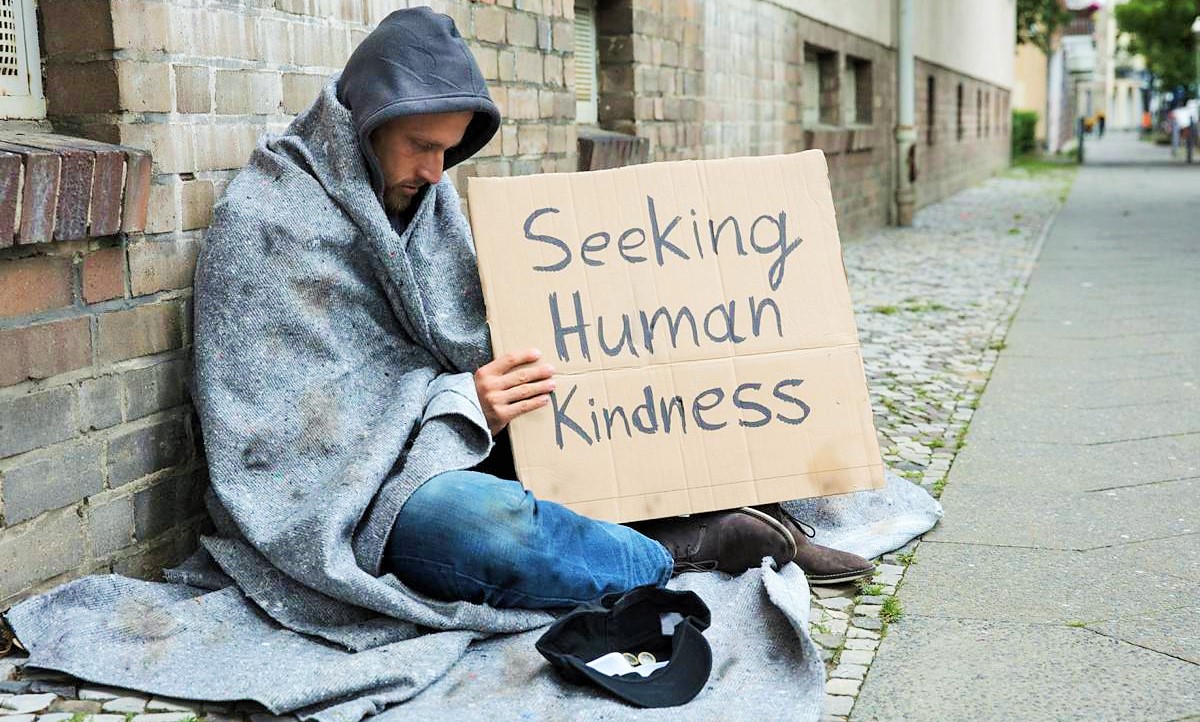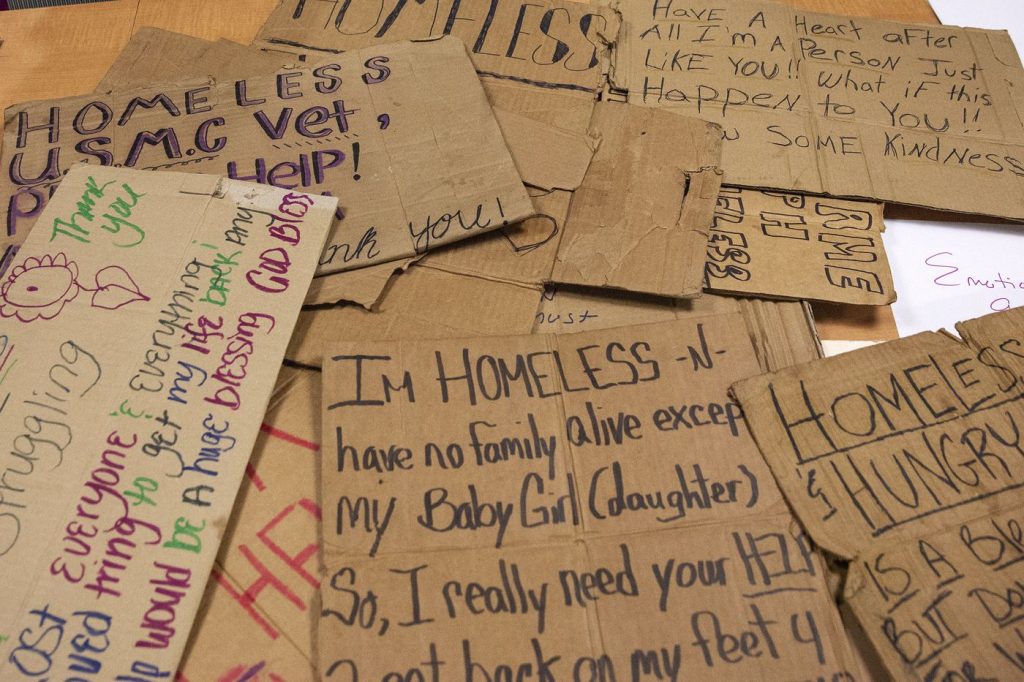
Why would you have a character panhandle? I can think of several reasons just off the top of my head.

- S/he really is down and out and desperate
- It requires less training, credentials, etc., than a regular job
- To win a bet or meet a dare
- To put one over on the gullible
- To conduct undercover surveillance
- To collect research data
- Funding a backpacking tour (“beg-packing”)
- Several religious orders are mendicants and depend on donations from devout followers
Thanks to wikiHow, we have a clear recipe for successful panhandling—or failure, depending on the needs of your plot. Here’s the basic recipe, taken largely from the wikiHow panhandling page, but visit Marginal Revolution or Prepper Press for more detail and the rationale behind recommendations. See also Inc.com, Bill Murphy, Jr. on sales techniques.

Location
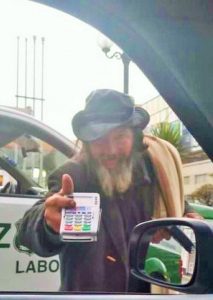
- Choose a place with lots of foot traffic:
- Subway stations
- Metro stops
- Truck stops
- Urban campuses
- These places may require talking
- Alternatively, a place with lots of auto traffic:
- These places need a clearly visible sign
- Doesn’t work as well in cold, rainy weather

- If feasible, move location to take advantage of changing seasons and weather
- Stick to downtown commercial district and middle-class neighborhoods
- Don’t use the same location more than once a month
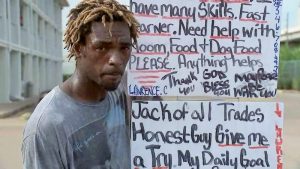
- Choose medium to large cities
- Do not beg near ATMs
- Don’t walk in the street
- Don’t block traffic
The Big Ask

- Ask politely
- Say thank you
- Be believable, whether truth or fiction
- Make the story fit the location, with props if appropriate (see notes on animals and children)
- Ask for a specific amount of money, e.g., the precise subway fare
- Keep it simple: I need XXX for YYY

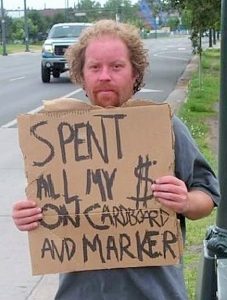
- Alternatively, spew something long and convoluted, hoping for money to make you go away
- Make signs easy to read at a glance
- Evoke sympathy (a homeless veteran, a disabled person, etc.)
- Be funny, make a joke, especially with college students
- Remember the regulars; greet people by name if feasible
- End politely, even if you don’t get any money
Safety
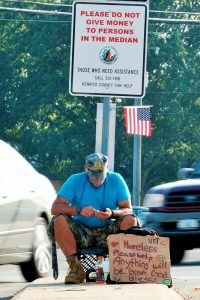
- Know the local laws about panhandling (locations, times, during events)
- Stay on good terms with businesses and other panhandlers
- Obey No Soliciting or No Loitering signs
- If told to move, just move
- Don’t panhandle after dark
- Stash money frequently, and/or spread it around your pockets, etc.
- Be aware that panhandling is actually hard work and dangerous
- Women need to be especially cautious

Miscellaneous Bits
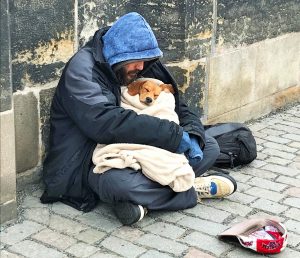
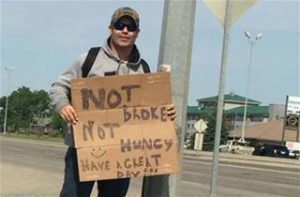
- Having a baby or child with you increases vulnerability exponentially
- Never bring a sick or malnourished animal with you
- Do not wear fashionable or expensive clothes
- Disheveled is okay, dirty isn’t
- Don’t smoke or drink anything while panhandling
- Don’t take money from people after the light turns green
- Use language and body language that is non-threatening
If you want your panhandler character to fail, break all the rules!
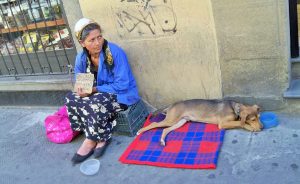
Writers note: If your character is panhandling because s/he really is down and out, consider community services, churches, soup kitchens, shelters, etc.
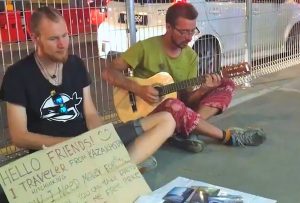
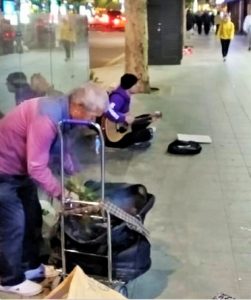
“Beg-packing” is a fairly recent phenomenon. Tourists, often college students, hitchhike and panhandle as they travel, allowing them to spend very little money on the way. Some see this as a way to open up sight-seeing opportunities to people outside the ultra-wealthy.
Others see it as a drag on local economies, with tourists begging for money from already impoverished communities without actually contributing anything. Some countries have outlawed panhandling tourists; police arrest beg-packers and drop them off at their respective embassies.

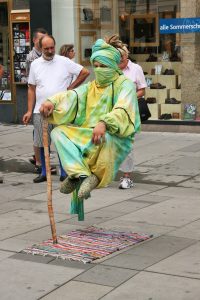
Street performers, technically, aren’t panhandlers. The definition of panhandling is seeking money without providing anything in return. Street performers are (presumably) providing entertainment and therefore are busking. From a writer’s point of view, it may make little difference.
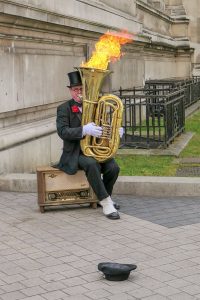
Depending on local ordinances, street performers may need to be licensed or scheduled by a central authority. For example, busking at platforms on the London Tube is so profitable that performers must audition and apply for time slots.
N.B. writers: Money made by street performers is taxable as tips; begging/panhandling income is not taxable.

Another variation is “selling” worthless trinkets or single flowers for an exorbitant price. For example, braided bracelets offered in exchange for $10. Selling flowers is common, particularly to tourists seated at outdoor cafes. Because so many panhandlers have begun taking flowers from funerary wreaths in local cemeteries, many florists in cities where this is common now deliberately snip the stems of funeral flowers just below the bud.
Consider Other Characters


- What motivates people who do or do not give money. Is giving money satisfying a “customer” need?
- Many religions encourage or require charitable giving of some sort.
- What are the attitudes of others toward panhandling?
- Sympathetic, disdainful, hostile, etc.
- Does the panhandler have family or friends?
- What about a boss who “runs” panhandlers the way a pimp runs prostitutes?
Bottom line for writers: Regardless of monetary success, panhandling is a rich opportunity for writers!

“Please” 
“More” 
“Magic Tea”
